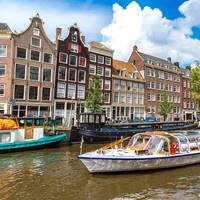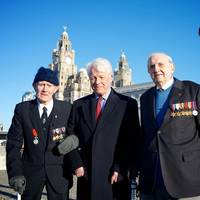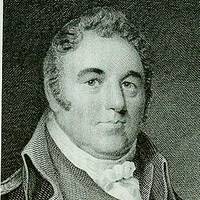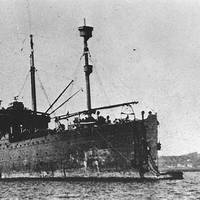Amsterdam's Boats Go Electric Ahead of 2025 Diesel Ban

The century-old Amsterdam canal boat Gerarda Johanna looks like a classic with wood paneling, but beneath its floorboards lies a high-tech underbelly: rows of lithium ion batteries, 66 in all, with an electric drive train powering its propeller.The boat is part of a push by Amsterdam’s new Green Party mayor to ban diesel engines from the center’s ancient canals by 2025, helping the city’s efforts to combat climate change.The transition among commercial vessels is well underway…
Amsterdam's Boats Go Electric Ahead of 2025 Diesel Ban
The century-old Amsterdam canal boat Gerarda Johanna looks like a classic with wood paneling, but beneath its floorboards lies a high-tech underbelly: rows of lithium ion batteries, 66 in all, with an electric drive train powering its propeller.The boat is part of a push by Amsterdam's new Green Party mayor to ban diesel engines from the center's ancient canals by 2025, helping the city's efforts to combat climate change.The transition among commercial vessels is well underway, with 75% of the 550 on the city's water qualifying as emissions free, according to city spokesman Wouter Keuning.Canal boats were a natural fit to go first. They are Amsterdam's most popular tourist attraction…
Battle of the Atlantic Memorial Planned in Liverpool

A fundraising campaign to build a international memorial dedicated to the estimated 100,000 people who lost their lives during the Battle of the Atlantic in World War II, as well as those who served and survived, is being launched in Liverpool. The Battle of the Atlantic Memorial (BOAM), the charity leading the campaign, will stage a press call with war veterans on the Liverpool’s iconic waterfront to launch the fundraising effort to build the 28 meter monument in the shape of a merchant ship split in two.
Radio Holland Turns 100

Radio Holland Group (Rotterdam) celebrated its 100th anniversary in the maritime shipping industry. The event took place on board of the historical ship ss Rotterdam, in the port of Rotterdam where Radio Holland also has its headquarters. Paul Smulders, CEO of Radio Holland, welcomed the Mayor of Rotterdam, Ing. A. Aboutaleb and presented the Mayor with the first edition of the book ‘A century Radio Holland, 1916-2016’. Paul Smulders, CEO of Radio Holland says: "Radio Holland is 100 years young! We have a rich history, full of unique moments and milestones.
This Day In Naval History: June 29
1860 - The steamer USS Mystic, commanded by William E. LeRoy, captures the slaver, Thomas Achorn at Kabenda, Africa and send her to New York. 1862 - During the Civil War, the steam sloop USS Susquehanna, commanded by Cmdr. R.B. Hitchcock, captures the blockade-running British steamer HMS Anna near Mobile, Ala. 1871 - Capt. Charles F. Halls arctic expedition sails from New York on USS Polaris. Aiming for the North Pole, USS Polaris reaches 82X 11 N, 61X W. latitude, then the furthest point north reached by a vessel. 1944 - USS Darter (SS 227) sinks the Japanese minelayer Tsugaru in the Dutch East Indies. 1950 - USS Juneau (CLAA 119) and USS De Haven (DD 727) fire the first naval shore bombardment of the Korean War in the vicinity of Samchock, Korea.
Today in U.S. Naval History: July 1

Today in U.S. 1800 - First convoy duty; USS Essex escorts convoy of merchant ships from East Indies to U.S. 1801 - U.S. 1911 - Trial of first Navy aircraft, Curtiss A-1. The designer, Glenn Curtiss, makes first flight in Navy's first aircraft, A-1, at Lake Keuka, NY, then prepares LT Theodore G. Ellyson, the first naval aviator, for his two solo flights in A-1. 1916 - Establishment of informal school for officers assigned to submarines at New London, Conn. 1933 - USS Constitution commences tour of principal U.S. seaports.
Today in U.S. Naval History: July 1

Today in U.S. 1800 - First convoy duty; USS Essex escorts convoy of merchant ships from East Indies to U.S. 1801 - U.S. 1911 - Trial of first Navy aircraft, Curtiss A-1. The designer, Glenn Curtiss, makes first flight in Navy's first aircraft, A-1, at Lake Keuka, NY, then prepares LT Theodore G. Ellyson, the first naval aviator, for his two solo flights in A-1. 1933 - USS Constitution commences tour of principal U.S. seaports. 1951 - Responsibility for the Government of Trust Territories transferred from Navy to Department of Interior.
World Shipping Accident 'Hotspots' Revealed
A report released by WWF points to ship accident-prone areas: the South China Sea & East Indies, east Mediterranean & Black Sea, and the busy shipping lanes around the British Isles, North Sea and Bay of Biscay. The busy shipping lanes around the British Isles, North Sea and Bay of Biscay had the fourth largest number of shipping accidents in the world, with 135 reported incidents between 1999 and 2011 including fires, collisions and leakage of toxic waste. The North Sea is one of the most intensively sailed seas in the world with over 120,000 ship movements taking place there every year. The WWF report also names the South China Sea and East Indies, east Mediterranean and Black Sea, as dangerous hotspots for accidents involving ships.
This Day in Naval History - July 01
1797 - Naval Regulations passed by Congress. 1800 - First convoy duty; USS Essex escorts convoy of merchant ships from East Indies to U.S. 1801 - U.S. squadron under Commodore Dale enters Mediterranean to strike Barbary Pirates. 1850 - Naval School at Annapolis renamed Naval Academy. 1851 - Naval Academy adopts four year course of study. 1911 - Trial of first Navy aircraft, Curtiss A-1. The designer, Glenn Curtiss, makes first flight in Navy's first aircraft, A-1, at Lake Keuka, N.Y., then prepares Lt. Theodore G. Ellyson, the first naval aviator, for his two solo flights in A-1. 1914 - Prohibition of alcohol begins in the Navy. 1916 - Establishment of informal school for officers assigned to submarines at New London, Conn.
Radio Holland Celebrates 90 Years
Radio Holland Group (Rotterdam) celebrated its 90th anniversary in the maritime shipping industry. The company was founded in 1916 in Amsterdam as the "Nederlandsche Telegraaf Maatschappij Radio-Holland" by a group of Dutch ship owners. They saw the significance and necessity of radio communications to the safety and efficiency of shipping. Radio Holland began installing radio stations on board of Dutch merchant vessels. In those years and up to the nineties Radio Holland also employed the radio-officer (also called 'sparks') on board, who operated the equipment and in the early days, the morse key. For this purpose, Radio Holland founded a special own training college for radio-officers after the first World War, in Amsterdam.
HM Bark Endeavour: Cook's
In 1768 British-born explorer Lt. James Cook and his crew set sail on the HM Bark Endeavour on one of the most significant maritime voyages ever. After observing the transit of Venus across the sun in the Pacific, they headed south-west to New Zealand, traveling up the east coast of Australia, then on to the Dutch East Indies (Jakarta and Indonesia). Contrary to popular belief, Cook didn't discover Australia — he wasn't even the first European to arrive there. What's most remarkable about his journey was his use of cutting-edge 18th century scientific techniques to chart a substantial part of the coastline and fix the continent. On this voyage Cook became the first to calculate his longitudinal position with accuracy…





